#classics
Text
Henry Jekyll and Victor Frankenstein would absolutely be best friends
#jekyll and hyde#victor frankenstein#frankenstein#henry jekyll#edward hyde#the strange case of dr jekyll and mr hyde#classics#meme
116 notes
·
View notes
Text
https://jennifer-853.ludgu.top/m/Tc09ByD
129 notes
·
View notes
Text
#ab/dl girl#booklr#one tree hill#early 1900s#marceline#gaypride#cameron monaghan#acı#exhibtionist#pedro pascal x reader#met gala#anime series#classics#Froy Gutierrez
126 notes
·
View notes
Text
Latin Literature Tournament - Round 1
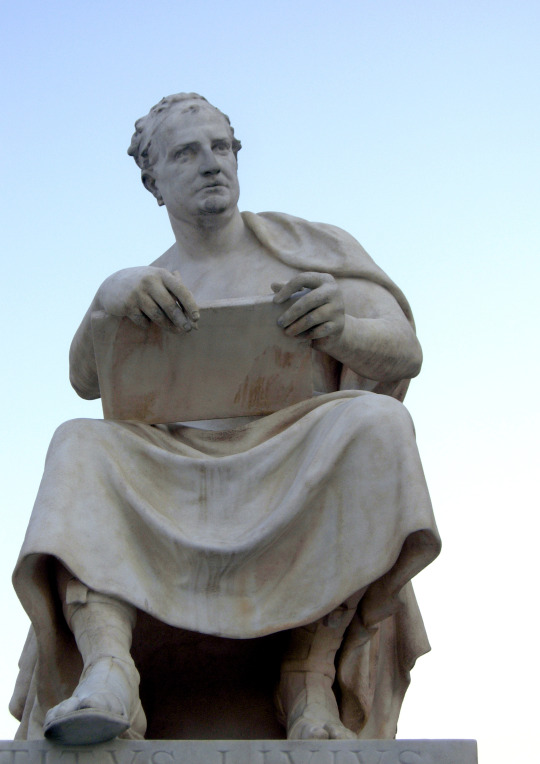

Propaganda under the cut!
Livy Propaganda
Wanna teach your kids some exempla virtutis? Look no further
Writes in really fantastic periodic style
An undergrad in a class I TA’d for once referred to him in an essay as “my homeboy Livy,” and frankly there is no review more glowing than that
Sallust Propaganda
Writes prose like it's poetry
Loves to work in fun little archaisms without warning, as a treat
Does really amazing things with speeches and rhetoric
#tagamemnon#Latin literature tournament#classics#Latin literature#sallust#Livy#ancient Rome#tournament polls#bracket#catiline#ab urbe condita
58 notes
·
View notes
Text
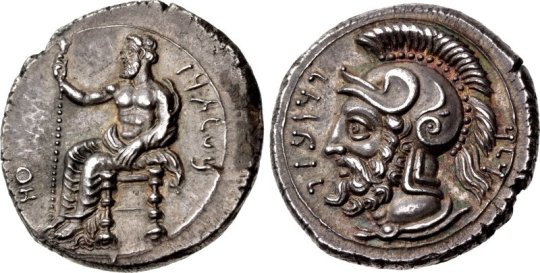
Stater, minted 380/379 BCE at Tarsus in Cilicia, of Pharnabazus II, former satrap of Hellespontine Phrygia under the Achaemenid dynasty of Persia and a major figure in the internecine conflicts of the Greek city-states during the late 5th/early 4th centuries. The coin shows the complex intermingling of Greek and Near Eastern cultures characteristic of Anatolia under Achaemenid rule. On the obverse, Ba'al of Tarsus is shown seated, holding a lotus-tipped scepter and wearing the Greek chlamys. On the reverse, a bearded man wears a helmet in Attic style. Both sides are inscribed in Aramaic, which served as the lingua franca of the Near East under the Achaemenids. Photo credit: Classical Numismatic Group, Inc. http://www.cngcoins.com
#history#ancient history#classics#tagamemnon#Persian Empire#Achaemenid#coins#ancient coins#Persian coins#numismatics#ancient numismatics#artifacts#artefacts
32 notes
·
View notes
Text

Atalanta #4 (Atalanta Outwrestles Peleus)
At the funeral games for King Pelius, Atalanta wrestles the Argonaut, Peleus, winning the match through strength and technique.
Looking to Homer and the Iliad and the funeral games for Patroclus, we can get a overview of the ancient greek funeral games. The body of the fallen was placed upon a funeral pyre, offerings or sacrifices are made, and the pyre burnes. In the funeral games was an opportunity for Greek men to compete and show their Arete, or excellence, in a given skill. Events like; Chariot races, boxing, wrestling, running, sword fighting, shotputting, archery, and javelin throwing. The winners of the contests could hope to be awarded the glorious olive wreath crown; or other precious objects like tripods or horses. In fact these funerary competitive games are seen as the ancient roots of the Olympic games. Although it was Hercules who created the first Olympic games to honor his father, Zeus.
Let’s take a look at Atalanta’s wrestling partner; Peleus, who plays an important role in Greek myth. As one of the heroes of the Argonautica, he later becomes a king of Phthia (in Thessaly) and is most famous for his marriage to the sea nymph Thetis. Zeus learned the prophecy that through his coupling with Thetis, her offspring would overthrow the Olympians, so he gave Thetis to a mortal; King Peleus. Chiron the centaur gave King Peleus the tip that he should ambush and hold tight to Thetis, as she transformed between forms. After succeeding to capture her, she agrees to marry, and the gods attend the wedding ceremony. This is the banquet where Eris, goddess of discord, sneaks in the golden apple inscribed with “for the farest,” setting off an argument between Athena, Hera, and Aphrodite. When Paris, prince of troy is Aphrodite promising Helen to Paris, setting off the Trojan war.
Like this art? It will be in my illustrated book with over 130 other full page illustrations coming in June to kickstarter. to get unseen free hi-hes art subscribe to my email newsletter
Follow my backerkit kickstarter notification page.
Thank you for supporting independent artists! 🤘❤️🏛😁
#greekmythology#greekgods#pjo#mythology#classics#classicscommunity#myths#ancientgreece#argonauts#ovid#homer
29 notes
·
View notes
Text
Favourite genre of classics article: author going in a tangent about their blorbo from ancient literature. “So-and-so is actually way more interesting than the main character and nobody fully appreciates their storyline or understands them like me.” Okay go off. I think these authors would fit in very well on this webbed site.
25 notes
·
View notes
Text
"Blorbo from my shows" no. Blorbo from my BA. Blorbo from my major. Blorbo from my primary source document.
#this is how i feel about orestes and antilochus#you all get it#tagamemnon#classics#history#ancient history
27K notes
·
View notes
Text
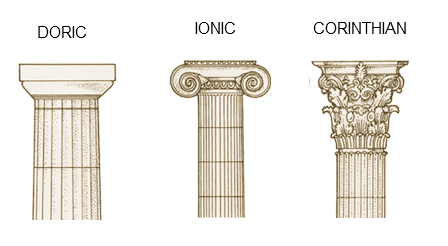
cast your votes!!
#classics#ancient greece#ancient rome#greek mythology#architecture#columns#doric columns#ionic columns#corinthian columns#polls#posts of lark#10k#20k#30k#literally fml why is this my tumblr legacy
37K notes
·
View notes
Text
I love you people going into "useless" fields I love you classics majors I love you cultural studies majors I love you comparative literature majors I love you film studies majors I love you near eastern religions majors I love you Greek, Latin, and Hebrew majors I love you ethnic studies I love you people going into any and all small field that isn't considered lucrative in our rotting capitalist society please never stop keeping the sacred flame of knowledge for the sake of knowledge and understanding humanity and not merely for the sake of money alive
#classics#mythology#ancient greek mythology#ancient roman mythology#comparative literature#latin#hebrew#ethnic studies#fuck capitalism#communism#i love my useless degree idc#academia#university#dark academia#Greek#philosophy#liberal arts#humanities#women and gender studies#cultural anthropology
35K notes
·
View notes
Text
I am jealous of those who think more deeply, who write better, who draw better, who look better, who live better, who love better than I.
-Sylvia Plath
#quotes#writers and poets#poetry#dark academia poetry#dark acadamia quotes#books#poem#poets corner#poets on tumblr#poems on tumblr#bibliophile#classic literature#english literature#literature#classic lit quotes#lit quotes#lit#classic academia#classics#dark academia aesthetic#dark academia#chaotic academic aesthetic#dark academia quotes#book quotes
34K notes
·
View notes
Text
Latin Literature Tournament - Round 1
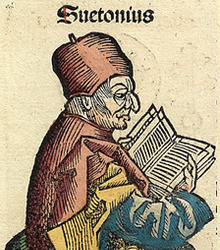
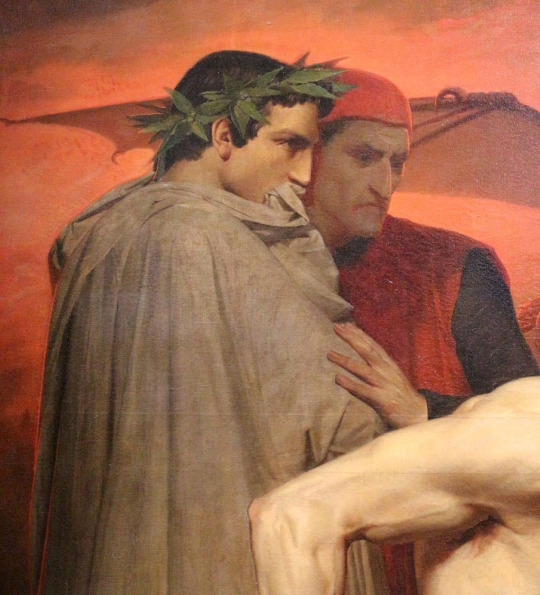
Propaganda under the cut!
Suetonius Propaganda
I say this with all love and affection--Suetonius is so full of shit. Like reading a magazine in the grocery impulse aisle, in the best possible way
Has very cool intratextual bits and ring structures
He runs on pure vibes, and honestly I love this for him
Vergil Propaganda:
The vates himself, everyone. The poet so good that the Church was like "okay yeah this one magical pagan can stay"
The Fourth Eclogue is such a weird little delight. Is it about the children of Antony? Augustus? Is it a prediction of the birth of Christ? Is it somehow, as I heard one professor suggest for some reason, about Gallus? The possibilities are endless
Are you going to vote against the world-shattering masterpiece that is the Aeneid?
Side note, if you spell it "Virgil" you are my enemy
#tagamemnon#vergil#suetonius#classics#latin#latin literature#latin literature tournament#tumblr polls#tournament polls#bracket#virgil#history#epic#bucolic
73 notes
·
View notes
Text
we need ao3 back up for this person’s grandma specifically
23K notes
·
View notes
Text
In the native dialect of Lesbos, Sappho's name is spelled "Psappho". I sometimes picture what it would have been like if that had been the spelling modern English had gone with. Imagine being psapphic.
11K notes
·
View notes
Text
”Men think about the Roman Empire” “What’s the female version of the Roman Empire” SHUT UPPPPP. SHUT THE FUCK UPPPPPP. AS A WOMAN I LOVE THE ROMAN EMPIRE. AS A WOMAN I LOVE ANCIENT HISTORY AND BATTLES AND POLITICAL INSTABILITY. THE “GIRL VERSION OF THE ROMAN EMPIRE” IS THE ROMAN EMPIRE. IM GOING TO STAB YOU 23 TIMES
#why do we have to gender history ffs I hate it here#sorry just had to get it out my system#roman empire#history#classics#tagamemnon#ancient history#ancient rome
21K notes
·
View notes
